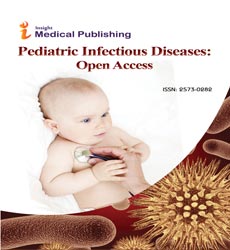Assessment and treatment of feeding difficulties in high risk infants
Amber Valentine Forston
CNT Baptist Health Lexington, Lexington
Received Date: 2022-03-07 | Accepted Date: 2022-03-14 | Published Date: 2022-03-21Abstract
Feeding is the most complex task of infancy, even in term babies with no complications. There are many diagnoses, conditions, syndromes, and co-morbidities that can impact feeding in neonates and infants. This talk will briefly highlight many of those, but we will focus on three specific populations of interest –Neonatal Abstinence Syndrome, Infants of Diabetic Mothers, and Downs Syndrome. This paper will discuss the specific implications these conditions can have on feeding, why these infants may have difficulty, and the classic symptoms one could expect to see. The differences between delayed and disordered feeding will also be addressed. Strategies and adaptions for both breast and bottle feeding will be discussed. Positioning, nipple flow rate, and external strategies will be explained. The Speech-Language Pathologist is often seen in settings as the expert for infants with feeding difficulties, predominantly for bottle feeding or feeding aversions. In today’s society, with breast feeding becoming more and more “the norm,” the SpeechLanguage Pathologist has become more involved in the area of feeding assessment with not only bottle fed infants but infants who are attempting breast feeding as well. The Speech Language Pathologist brings an interesting background to the area of breast feeding with a knowledge of the oral mechanism, infant respiratory system, and swallowing mechanisms. In many Neonatal Intensive Care Unit (NICU) and pediatric facilities, the Speech Language Pathologist is now providing pre-feeding readiness assessments on infants, and by doing these, allowing many infants to get in on the ground floor with breast feeding. These infants in the NICU and early pediatric setting can be provided with more opportunities to become successful breast feeders especially those infants who were previously thought to be unable to complete this task. This paper will discuss the role of the Speech Language Pathologist in lactation clinically, strategies for infants with feeding difficulties whether at breast or bottle, as well as how we can work together between disciplines to improve breastfeeding success.
Open Access Journals
- Aquaculture & Veterinary Science
- Chemistry & Chemical Sciences
- Clinical Sciences
- Engineering
- General Science
- Genetics & Molecular Biology
- Health Care & Nursing
- Immunology & Microbiology
- Materials Science
- Mathematics & Physics
- Medical Sciences
- Neurology & Psychiatry
- Oncology & Cancer Science
- Pharmaceutical Sciences
